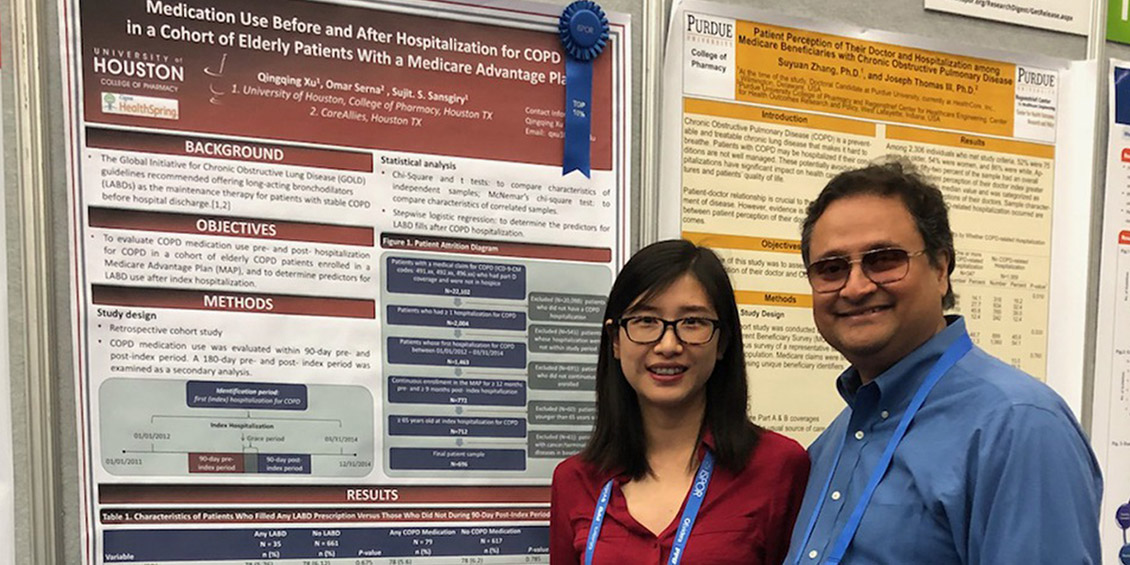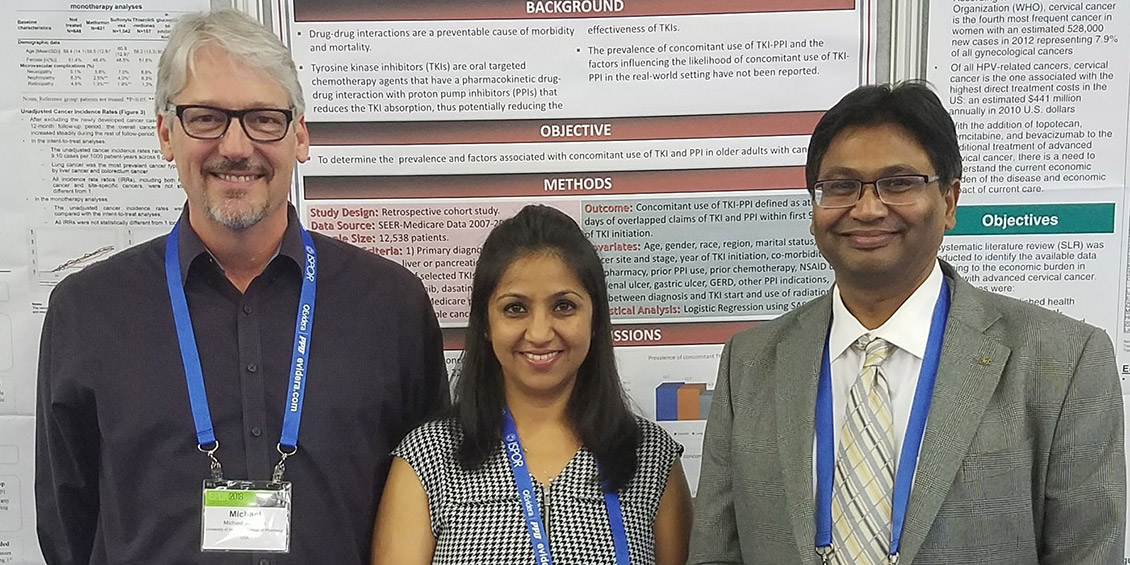Research News
Eye-catching Research at ISPOR
Projects on COPD Medication Utilization and Concomitant GERD, Chemotherapy Drugs Place PHOP Candidate, Recent Graduate Among 'Best Poster' Finalists
A current student and a recent graduate of UH College of Pharmacy's Pharmaceutical Health Outcomes and Policy (PHOP) Ph.D. program were among the "Best Poster Presentation" finalists at the ISPOR 2018 International Meeting May 19-23 in Baltimore, Md.
In the presentation, "Medication use before and after hospitalization for COPD in a cohort of elderly patients with Medicare Advantage Plan," Ph.D. candidate Qingqing Xu, M.S., revealed that her project team's analysis of MAP-enrolled Chronic Obstructive Pulmonary Disease (COPD) patients found that more than 90 percent of the patients did not fill a therapeutic prescription for their condition.
From sample group of nearly 700 patients, the researchers found that less than 10 percent of elderly MAP-enrolled patients were prescribed a COPD medication – such as a long-acting bronchodilator (LABD) – up to 90 days prior to their first hospitalization for the disease. The poor prescription utilization rate increased only nominally – to slightly above 11 percent – after hospitalization. The study authors suggested that interventions could help improve post-discharge use of COPD medications and patient outcomes.
Coauthors on the project were UHCOP graduate Omar Serna, Pharm.D. ('09), BCACP, clinical operations manager at CareAllies (formerly Cigna Healthspring), and UHCOP Associate Professor Sujit Sansgiry, Ph.D.
Recent PHOP graduate Manvi Sharma, Ph.D. ('17), who now works as a postdoctoral fellow at UTHealth in Houston, presented "The prevalence and predictors of concomitant use of tyrosine kinase inhibitors and proton pump inhibitors in older adults with cancer: An observational study using SEER-Medicare Data."
Sharma and her collaborators conducted a retrospective study of SEER-Medicare data spanning a seven-year period to determine how often the tyrosine kinase inhibitor (TKI) chemotherapy agents and therapeutic for gastroesophogeal reflux disease (GERD) were being used concurrently. As the two drugs have known pharmacokinetic interactions that reduce the efficacy of the chemotherapy agents, failure of the TKI therapy could result in few options to treat the patient's cancer as well as higher healthcare costs for patients and payers due to the expense of TKIs.
Sharma and her coauthors recommended that PPI use be periodically evaluated and a deprescribing plan be developed to prevent treatment failure from the drug-drug interactions.
Coauthors of the project were Holly M. Holmes, M.D., M.S., AGSF, associate professor at the McGovern Medical School at UTHealth; fellow PHOP alumnus Hemalkumar B. Mehta, Ph.D., assistant professor at The University of Texas Medical Branch at Galveston; and UHCOP faculty members Hua Chen, M.D., Ph.D., Rajender R. Aparasu, Ph.D., FAPhA, and Michael L. Johnson, Ph.D.

